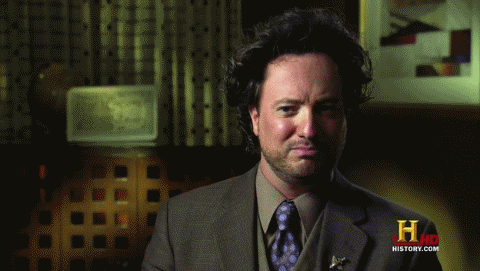Liberalism is center-right. It's capitalism without checks, it's political power grab from corporations. It's the death of democracy, because the economy is controlled by private individuals. And who controls the economy, controls the country.
Peppone go home. The term
Liberalism in the USA has been co-opted by the likes of you to further their marxist agenda, by tearing down the traditional values like honor, manhood and family under the pseud-liberalisation by degeneracy.
No, you are wrong. But it's not your fault. The problem is the fact that english is a degenerate language, the bastard son of french and germanic. You don't have a different word to differentiate social liberalism with economic liberalism, like in the superior italian. You had to borrow it from us, but sadly is underused.
https://en.wikipedia.org/wiki/Liberism
Ohh.. Peppone. I don't know why you say "No, you are wrong" to me, despite confirming me. But nevertheless i will clarify it.
As i said the term Liberalism has been co-opted in the USA and that means it is not used in its original meaning as in classical liberalism. Since Peppone can use wikipedia, therefore i suggest to read:
Liberalism,
Social Liberalism,
Modern Liberalism in the United states and
Liberalism in the United States.
Excerpts:
Liberalism:
Liberalism is a political and moral philosophy based on liberty, consent of the governed and equality before the law. Liberals espouse a wide array of views depending on their understanding of these principles, but they generally support free markets, free trade, limited government, individual rights (including civil rights and human rights), capitalism, democracy, secularism, gender equality, racial equality, internationalism, freedom of speech, freedom of the press and freedom of religion. ....
Unlike Europe and Latin America, the word
liberalism in
North America almost exclusively refers to social liberalism.
Social liberalism:
Social liberalism, also known as left liberalism in Germany, modern liberalism in the United States and new liberalism in the United Kingdom, is a political ideology and a variety of liberalism that endorses a
regulated market economy and the expansion of civil and political rights. Under social liberalism, the common good is viewed as harmonious with the freedom of the individual. ...
In the United States, social liberalism describes progressive stances on socio-political issues like abortion and same-sex marriage as opposed to social conservatism.
Modern Liberalism in the United States:
The modern liberal philosophy strongly endorses public spending on programs such as education, health care and welfare. Important social issues during the first part of the 21st century include economic inequality (wealth and income), voting rights for minorities, affirmative action, reproductive and other women's rights, support for LGBT rights and immigration reform. Modern liberals oppose conservatives on most but not all issues. Although historically related to social liberalism and progressivism, the current relationship between
liberal and
progressive viewpoints is debated.
Liberalism in the United States:
Modern liberalism includes issues such as same-sex marriage, reproductive and other women's rights, voting rights for all adult citizens, civil rights, environmental justice and government protection of the right to an adequate standard of living. National social services such as equal educational opportunities, access to health care and transportation infrastructure are intended to meet the responsibility to promote the general welfare of all citizens as established by the Constitution.
But you are excused Peppone in your europe centristic worldview therefore one more excerpt:
Today, liberalism is used differently in different countries. One of the greatest contrasts is between the usage in the United States and usage in Europe. According to Arthur M. Schlesinger Jr. (writing in 1956), "[l]iberalism in the American usage has little in common with the word as used in the politics of any European country, save possibly Britain". In Europe, liberalism usually means what is sometimes called classical liberalism, a commitment to limited government, laissez-faire economics and unalienable individual rights. This classical liberalism sometimes more closely corresponds to the American definition of libertarianism, although some distinguish between classical liberalism and libertarianism.
In the United States, the general term liberalism almost always refer to modern liberalism, a more social variant of classical liberalism.































